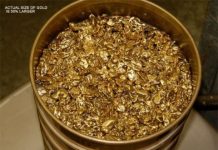FORMER Republican president Rupiah Banda has asked the magistrate’s court to quash the indictment involving two counts of corrupt practices on grounds that the offences are embarrassing and will lead to gross prejudice.
Banda has also asked the court to order the prosecution to furnish him with the particulars being sought.
He said in the absence of such particulars, the matter would cause embarrassment and prejudice him.
This is in a case in which Banda is alleged to have corruptly received 10 motor vehicles from Sogecao Zambia Limited and Sogecao Construction and Engineering as an inducement or reward for himself in return for his favourable treatment in their dealings with Government between January 2011 and August 30 2011.
In count two, Banda is accused of concealing gratification involving nine light trucks contrary to Section 36 of the Anti-Corruption Act No 38 of 2010.
Particulars allege that Banda between January 30 and August 2011 received nine motor vehicles all valued at K471,000.
This was alleged to have been obtained as gratification from Sogecao Zambia, a subsidiary of Anui Foreign Economic Construction Company, A company contracted to construct the Levy Mwanawasa Stadium in Ndola.
Banda is alleged to have concealed the receipt of the motor vehicles by having them registered in the names of other people connected to him.
In his submissions through his lawyers, in support of an application to quash the indictment, Banda said the State breached provisions of Section 134 and 137 of the Criminal Procedure Code, Chapter 88 volume 7 of the Laws of Zambia which governed and regulated the preparations of the indictment.
The accused said the provisions of Section 19 (1) of the Anti Corruption Act number 38 of 2010 makes it an ingredient of the offence receiving gratification but in the indictment it was not mentioned what public body was purportedly involved with the named companies leaving it only for the accused to wonder what transaction was being referred to.
Banda said it was quite clear that the 10 motor vehicles had not been identified in line with the provisions of Section 137 (c).

 JOIN DRIVERN TAXI AS PARTNER DRIVER TODAY!
JOIN DRIVERN TAXI AS PARTNER DRIVER TODAY!











